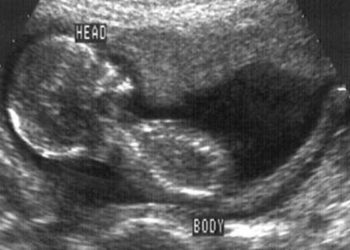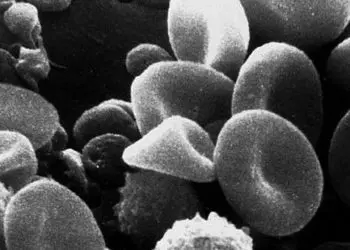Maternal lithium exposure in drinking water may increase risk of autism in offspring
1. In a population-based case-control study in Denmark, maternal exposure to lithium in water sources was associated with an increased risk of autism in offspring, after adjusting for sociodemographic factors and ambient air pollutants levels.
2. High level of maternal exposure to lithium in water sources was also associated with an increased risk of Asperger syndrome in offspring.
Evidence Rating Level: 2 (Good)
Study Rundown: Lithium is a naturally occurring trace element with mood-stabilizing effects, and there is some evidence that chronic low-dose ingestion may decrease the risk of dementia and suicide. Lithium is present in drinking water at low concentrations. It is heavily debated if lithium can be administered safely during pregnancy given its association with miscarriage and neonatal cardiac malformations. This population-based case-control study in Denmark evaluated the association between maternal lithium exposure in water sources and autism spectrum disorder (ASD) in offspring. Maternal lithium exposure was estimated by linking geocoded residential addresses with lithium levels in local drinking water. Prenatal exposure to lithium from naturally occurring drinking water sources was associated with an increased risk of ASD in offspring in a dose-dependent manner, after adjusting for sociodemographic factors and ambient air pollutant levels. Additionally, maternal lithium exposure was associated with an increased risk for Asperger syndrome, although this effect was seen only at high levels of lithium exposure (quartile 4 for levels of lithium). One significant limitation is the method of evaluating lithium exposure which may be altered by other factors such as diet, lifestyle, and water consumption behaviors. Furthermore, lithium exposure by the offspring themselves was not ascertained. Overall, this study suggests that chronic maternal lithium consumption in drinking water may be an environmental risk factor for ASD development in offspring, although further studies are necessary to confirm this association.
Click here to read the article in JAMA Pediatrics
In-Depth [case-control study]: This population-based case-control study in Denmark included singleton births in Denmark between 2000 and 2013 available in the Danish Medical Birth Register. Autism spectrum disorder (ASD) cases were identified using the International Statistical Classification of Diseases and Related Health Problems up to 2016. Controls were age and gender-matched at a ratio of 1:5. A total of 8,842 ASD participants and 43,864 controls were included. Maternal residential addresses were geo-coded and groundwater was sampled from the 144 largest public waterworks using mass spectrometry with a detection limit of 0.5 μg/L throughout Denmark in 2013. The mean lithium level was 11.6 (SD, 6.8) μg/L, ranging from 0.6 μg/L to 30.7 μg/L. For every interquartile (IQR) increase in geospatial estimated lithium level in drinking water at maternal residence adjusting for maternal demographics, neighborhood socioeconomic factors, and ambient air pollutants, there was an adjusted odds ratio (aOR) of 1.23 (95% CI 1.17-1.29) of developing ASD in the newborn. When stratified by geolocation, there was a higher risk of childhood ASD in urban areas (aOR 1.28, 95% CI, 1.18-1.38 per IQR increase) compared to provincial towns and rural areas. Sub-analysis revealed that the risk of ASD was similar between IQRs when compared to reference with aOR 1.33 (95% CI 1.19-1.48), 1.34 (95% CI 1.19-1.51), and 1.49 (95% CI 1.32-1.68) for Q2, 3, and 4. Conversely, in Asperger syndrome, the trend towards increased risk per IQR range with aOR 1.34 (95% CI 1.19-1.51) was predominantly driven by the effect of the highest IQR (quartile 4). In this case, the aOR of Q2 was 1.09 (95% 0.91-1.30), Q3 was 0.90 (95% 0.74-1.10), and Q4 and greater was 1.63 (95% 1.35-1.97).
Image: PD
©2023 2 Minute Medicine, Inc. All rights reserved. No works may be reproduced without expressed written consent from 2 Minute Medicine, Inc. Inquire about licensing here. No article should be construed as medical advice and is not intended as such by the authors or by 2 Minute Medicine, Inc.







